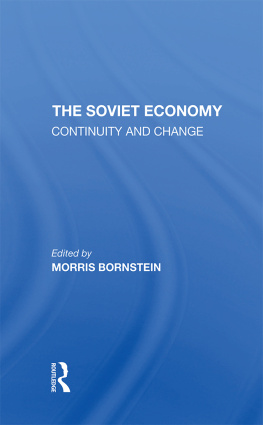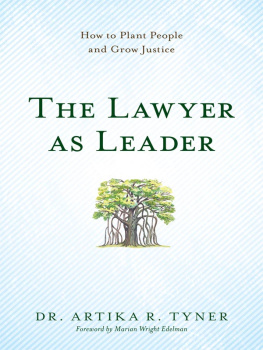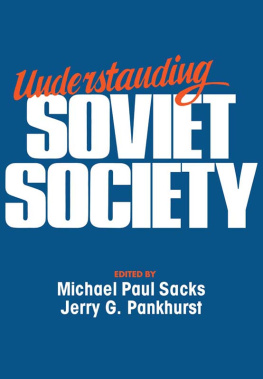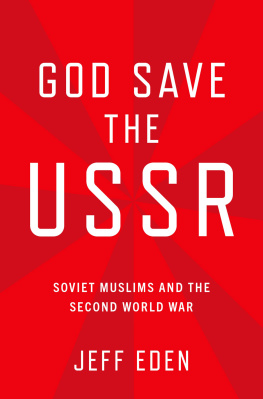For my parents and for Liusia and Lyosha
First published 1991 by Westview Press
Published 2018 by Routledge
52 Vanderbilt Avenue, New York, NY 10017
2 Park Square, Milton Park, Abingdon, Oxon OX14 4RN
Routledge is an imprint of the Taylor & Francis Group, an informa business
Copyright 1991 by Robert Rand
All rights reserved. No part of this book may be reprinted or reproduced or utilised in any form or by any electronic, mechanical, or other means, now known or hereafter invented, including photocopying and recording, or in any information storage or retrieval system, without permission in writing from the publishers.
Notice:
Product or corporate names may be trademarks or registered trademarks, and are used only for identification and explanation without intent to infringe.
Library of Congress Cataloging-in-Publication Data
Rand, Robert.
Comrade lawyer : inside Soviet justice in an era of reform /
Robert Rand.
p. cm.
Includes bibliographical references and index.
1. LawyersSoviet Union. 2. Practice of lawSoviet Union.
I. Title.
LAW
349.47dc20
[344.7]
90-46929
CIP
ISBN 13: 978-0-367-00394-4 (hbk)
This book is about Soviet lawyers, the practicing attorneyscalled advokaty , or advocateswho advise citizens in the USSR of their legal rights and defend their interests in court.
Material for the book was gathered in Moscow. From November 1987 through June 1988, 1 sat side by side with members of the Moscow City College of Advocates, the local bar organization, as they participated in legal consultations with clients and represented citizens in judicial proceedings. The focus of this book is thus restricted to law practice in the Soviet capital. Legal services as provided there and as described in this book may not reflect the reality of law practice elsewhere in the country.
However, certain issues of concern to Moscow lawyersa criminal defendants right to counsel, payments to attorneys, and the efforts of the legal profession to gain prestige and poweraffect attorneys in each of the fifteen Soviet republics. In addition, the Moscow City College of Advocates is the most influential bar organization in the USSR. It is a trend setter, and its activities and policies have a significance that reaches well beyond the capital citys borders.
I believe that my experience in Moscow provided an unprecedented look at the Soviet legal system from the inside, particularly for an American. I came to know dozens of advocates, many of whom, both at work and in their homes, generously and patiently provided a treasure trove of knowledge, experience, and insight about all I saw. I also interviewed many other participants in the justice system, such as judges and state prosecutors, and their opinions balanced the views of my attorney sources.
My assignment in Moscow was all the more compelling because it occurred as Soviet institutions were confrontingwith caution, with exhilaration, and sometimes with open disdainthe demands of a vigorous and impatient Kremlin leader intent on change. Communist Party General Secretary Mikhail Gorbachevs policies of glasnost (popularly defined as openness) and perestroika (an effort to restructure and energize the way the USSR operates) have touched virtually all aspects of Soviet life, including the law and delivery of legal services. The justice system in particular has been caught up in the whirlwind of Gorbachevs reforms. And its constituent playersjudges, state prosecutors, police and criminal investigators, Justice Ministry officials, Communist party functionaries, and attorneyshave been forced, as much as anyone in Gorbachevs USSR, to grapple with the challenges and opportunities presented by the Soviet leaders agenda.
The focus of this book is comrade lawyer, the courtroom advocate who is the Soviet citizens primary point of contact with the legal system. The advocate and advokatura (bar) compose one section of a wider community of Soviet legal professionals, known collectively as iuristy. The advocate alone is the subject of this book. Other legal professionals, such as iuriskonsulty , the legal advisers who work full-time for Soviet economic and government institutions, have been reported on elsewhere and are beyond the scope of this project.
A note on methodology: My research and reporting are based on interviews with advocates (and, in some instances, with their clients), as well as on first-hand observation of ninety-two lawyer-client consultations and fifteen courtroom proceedings. Most of the consultations, which covered both civil and criminal matters, took place in a single law office. This was by design. I believed that real access to the advocate and to his or her work depended on gaining the trust of lawyers who were unaccustomed to the presence of any foreigners, let alone an American. That required time that would not have been available had I tried to study legal practice in a large number of Moscow firms. I have no doubt, in retrospect, that my tactics were proper. I was able to observe lawyer-client consultations at will, and I was permitted to attend law office staff meetings regularly and to join the law office delegation at a general meeting of the Moscow Bar Association. The legal consultation bureau at issue, Law Office Number Twenty-one, was selected as my host by the chairman of the Moscow Bar Association because it had previously received delegations of visiting foreign attorneys.
The question arises: Was the practice of law in one office representative of law practice in Moscow as a whole? In the abstract, its hard to say. The only way to have answered that question would have been to work in a cross-section of Moscows thirty consultation bureaus. That, because of time constraints, would not have been feasible.
In my estimation, concentration on one law office provided me with a body of information that did in fact reflect Moscow law practice in general. Within that single office I was able to observe closely the work of five separate advocates; I also had informal discussions with most of the offices thirty-five lawyers over the course of my eight-month affiliation there. All this ensured that the views or work habits of one particular individual would not skew my reporting. What is more, I sat in on lawyer-client consultations in a second legal consultation bureau, Number Six, and found the essentials of law practice there (office organization, flow of clients, physical facilities, hours) to be indistinguishable from those in my base law office. Interaction with dozens of advocates from a range of other offices, in both formal and informal settings, as well as interviews with Moscow bar officials and a close reading of the Soviet press on issues concerning the bar, gave me every reason to believe that the experience I encountered in my host law office broadly represented law practice in the Soviet capital.
Of the fifteen courtroom proceedings I attended, eleven involved criminal matters. Four were civil law cases. The stress on criminal litigation was another deliberate choice. The advocate as defense counsel occupies a pivotal place in any system of justice. Historically, public defenders in the USSR have operated under a host of state-imposed constraints designed to undercut the delivery of an effective legal defense. The area of criminal law and procedure and the lawyers place in it, therefore, is an important barometer of Gorbachevs efforts to implement legal reform.










